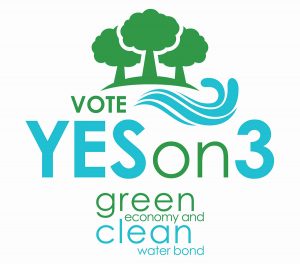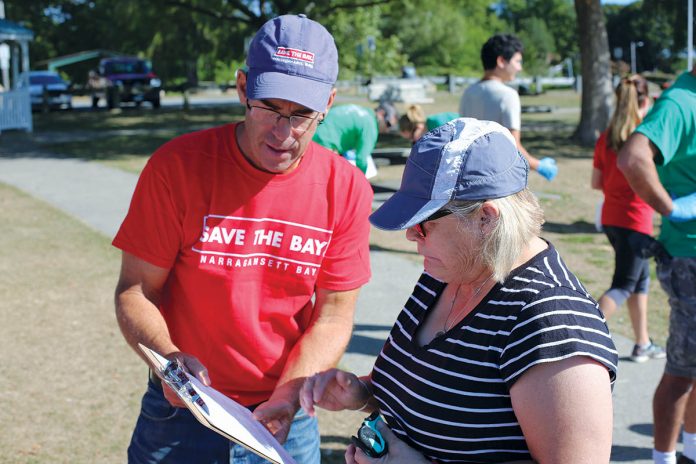Rhode Island nonprofits, to varying degrees, have thrown their weight behind certain causes in past elections that align with their missions.
But some have learned the hard way that there are risks in political advocacy for organizations that rely on fundraising and public support.
According to the Internal Revenue Service, “All section 501(c)(3) organizations are absolutely prohibited from directly or indirectly participating in, or intervening in, any political campaign on behalf of or in opposition to, any candidate for elective public office.”
Monetary, verbal and written contributions to political campaigns are also prohibited, and may result in revocation of an organization’s tax-exempt status.
But the more than 8,511 nonprofits operating in the state are allowed to participate in voter-registration drives and efforts to educate the public on certain causes under consideration during an election.
A ballot measure, also known as a referendum, acts as a gauge of voters’ opinions on everything from casino operations to levying bonds to pay for public school infrastructure repairs and state constitutional amendments.
Crossroads Rhode Island President and CEO Karen A. Santilli acknowledged prior leadership of the nonprofit publicly committed themselves to certain political opinions between 2011 and 2012. She declined to discuss the specific issues but said fallout was immediate. The agency reported a temporary dip in donations in late 2011 following then-President Anne Nolan’s support for pension reform.
“People got angry with Crossroads because we were taking a side on a particular issue – right or wrong – [and] they felt it wasn’t relevant to our mission,” she said.
Santilli said Crossroads tracked a roughly 12 percent decrease in direct-mail revenue from the period during which these individuals’ opinions became known.
Characterizing the donors whose patronage was lost during that time as “lower-dollar … but consistent, regular annual supporters,” Santilli said the result was “a direct negative impact on our revenue.
“That’s not something we can afford,” she added.
The key to future election-related education efforts for Crossroads, and any nonprofit, said Santilli, is “to remember who your stakeholders are and where they stand on an issue.”
It’s likely, she added, Crossroads will be politically active in local or national elections again, especially when it comes to affordable housing, homeless services and domestic violence – all of which tie directly to its mission.
Future involvement, she said, must have a “direct and relevant impact on our work.”
Jonathan Stone has led Save The Bay for a decade and said its political activity is minimal.
The Providence-based nonprofit’s main political agenda, he said, is “helping educate the public about the merits of particular referenda” relevant to Save The Bay’s mission.

Examples of previous involvement include programming regarding public funding for open-space allocation at Warwick’s Rocky Point Park, Fort Adams in Newport and India Point Park in Providence in the run up to the 2010 election. And more recently, Question No. 3 on next month’s statewide ballot regarding clean water and the green economy is supported by Save The Bay. The nonprofit has produced educational materials supporting the ballot question, which seeks $47.3 million for 10 environmental projects.
Stone isn’t interested in expanding the organization’s political activities. Calling Save The Bay a “very issues-driven” nonprofit, he added: “We are parsimonious in our desire to get involved. We want to be sure [political issues] are aligned with our own mission” before supporting them.
When it comes to political action by nonprofits, a little goes a long way, he says.
“When running a nonprofit, you dilute your own ability to influence outcomes when weighing in all the time,” he said. “Over time, you undermine your ability to [make an impact].”
Rachel Flum, executive director of Providence-based Economic Progress Institute, agrees selectivity is paramount.
“Our credibility lies in our ability to analyze state budgets and other data from a nonpartisan perspective,” said Flum. “Engaging in elections would sway that.”
As for other tax-exempt groups, she said, involvement in election-focused public education depends on each organization’s mission.
Once a nonprofit does get involved, she says, the key is to make all educational and informational resources universally available to candidates and the public.
“Nonprofits and other advocacy organizations certainly have expertise, and it’s important to share the expertise with candidates,” said Flum, noting the institute hosted a gubernatorial forum in 2014 to do just that.
Emily Gowdey-Backus is a staff writer for PBN. You can follow her on Twitter @FlashGowdey or contact her via email, Gowdey-backus@PBN.com.













